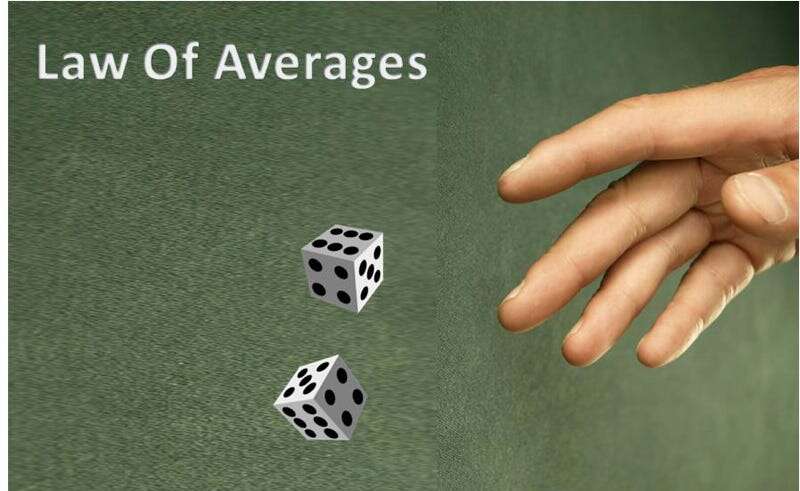
In the captivating realm of blackjack, where strategy and chance intermingle, players often encounter the enigmatic concept known as the Law of Averages. This exploration seeks to demystify this notion, elucidating its significance within the context of online blackjack.
Defining the Law of Averages
Before delving into its relevance in blackjack for real money, it’s essential to debunk a common misconception surrounding the Law of Averages. This notion, often touted as a quasi-magical principle, suggests that a favorable event becomes increasingly likely after a series of unfavorable outcomes. However, this “law” is not based on scientific fact but rather arises from a misinterpretation of the genuine statistical principle—the Law of Large Numbers.
The Law of Averages, fundamentally rooted in probability theory, posits that over a sufficiently large sample size, the observed outcomes of a random event will tend to converge toward the expected or average outcome. In simpler terms, it implies that the more times an event occurs, the closer the actual results will align with the theoretical probabilities.
The Connection to Blackjack
The question arises: How does this abstract concept relate to online blackjack for fun and real blackjack, games often associated with luck and strategy rather than statistical principles? The connection emerges when we consider the long-term perspective of the game. While each hand of blackjack for real money constitutes an independent event, the Law of Averages comes into play when examining extended sessions or cumulative results over many hands.
In blackjack for real money, as in any game of chance, specific probabilities underlie various outcomes. For instance, the likelihood of being dealt a blackjack (an Ace and a 10-value card) is roughly 1 in 21 hands when playing with a single deck. However, this probability does not guarantee a blackjack every precisely 21 hands; rather, it represents a long-term average. In the short term, players may experience streaks of varying frequencies for such events.
Misconceptions About the Law of Averages in Blackjack
The world of blackjack harbors several myths and misconceptions concerning the Law of Averages. These misconceptions can significantly impact players’ decision-making and the overall gaming experience. Let’s address and debunk these common beliefs:
- Myth 1: “I’m Due for a Win After a Series of Losses” This misconception often leads players to believe that after a string of losses, a win is imminent, guided by the Law of Averages. However, each hand in blackjack is an independent event, and previous outcomes do not influence future ones. The Law of Averages does not guarantee a win after a series of losses.
- Myth 2: “I’ve Had Several Blackjacks Already, So I’m Less Likely to Get Another One” Conversely, players may assume that their chances of receiving another blackjack diminish after enjoying several. Yet, the occurrence of blackjacks in the past does not affect the probability of future occurrences. Each hand stands alone, and the deck does not retain memory of past outcomes.
- Myth 3: “Streaks Are Inevitable” Some believe that winning or losing streaks in blackjack are inevitable once they commence. However, streaks are not predetermined or mandated by the Law of Averages. Each hand remains an independent event, subject to chance and randomness.
Frequently Asked Questions (FAQ)
Does the Law of Averages Guarantee Wins in Blackjack?
No, the Law of Averages does not guarantee wins in blackjack; rather, it helps players understand expected outcomes over time. Each hand is influenced by chance and strategy, with the Law of Averages offering insights into long-term trends.
How Should I Use the Law of Averages in My Blackjack Gameplay?
Players can utilize the Law of Averages to inform their betting and strategy decisions. This includes prudent bankroll management, disciplined play, and adopting a long-term perspective.
Is Card Counting Affected by the Law of Averages?
Card counting, an advanced blackjack strategy, leverages the Law of Averages by capitalizing on deviations from expected probabilities. Skilled card counters adjust their bets and actions based on changing probabilities.
Can the Law of Averages Help Predict When a Winning Streak Will End?
The Law of Averages has limitations in predicting the end of winning streaks. While it reveals long-term trends, it cannot pinpoint the precise moment a streak will conclude. Success in blackjack relies on understanding the element of randomness and making strategic decisions in each hand.
Conclusion
In the intricate tapestry of blackjack, understanding the Law of Averages empowers players to navigate the game’s ebbs and flows with wisdom and composure. While it does not guarantee immediate victories, this concept offers valuable insights into long-term trends, guiding responsible gaming practices. Embracing the reality that each hand is a distinct event influenced by chance and strategy fosters a more enjoyable and rewarding blackjack experience.











